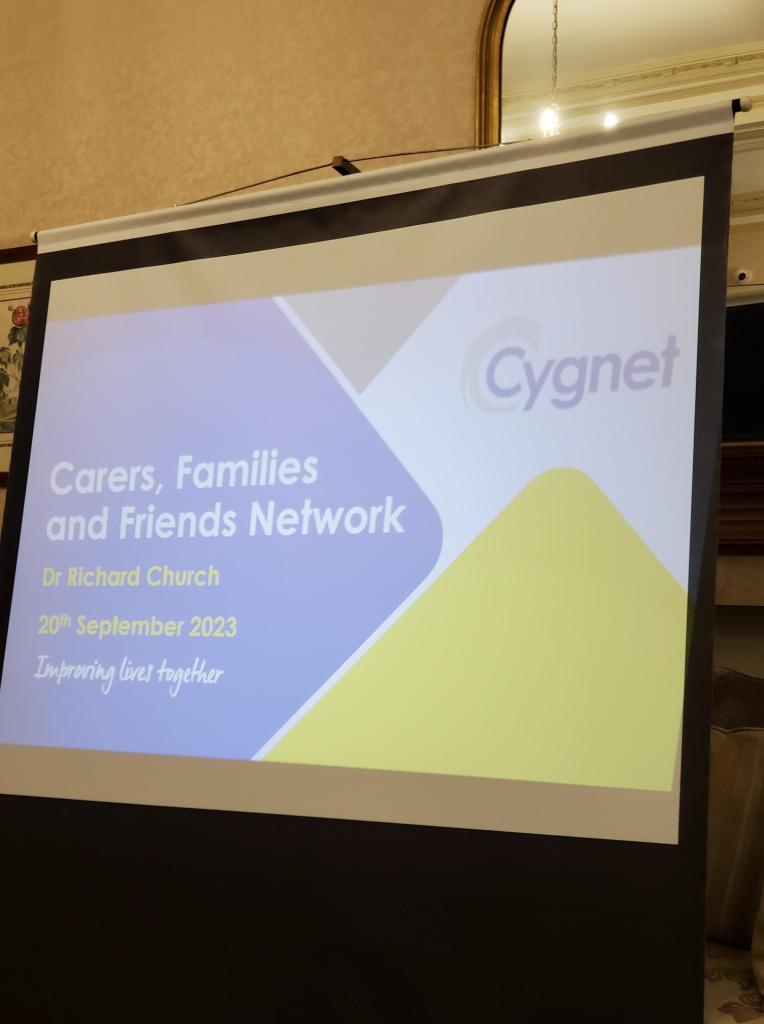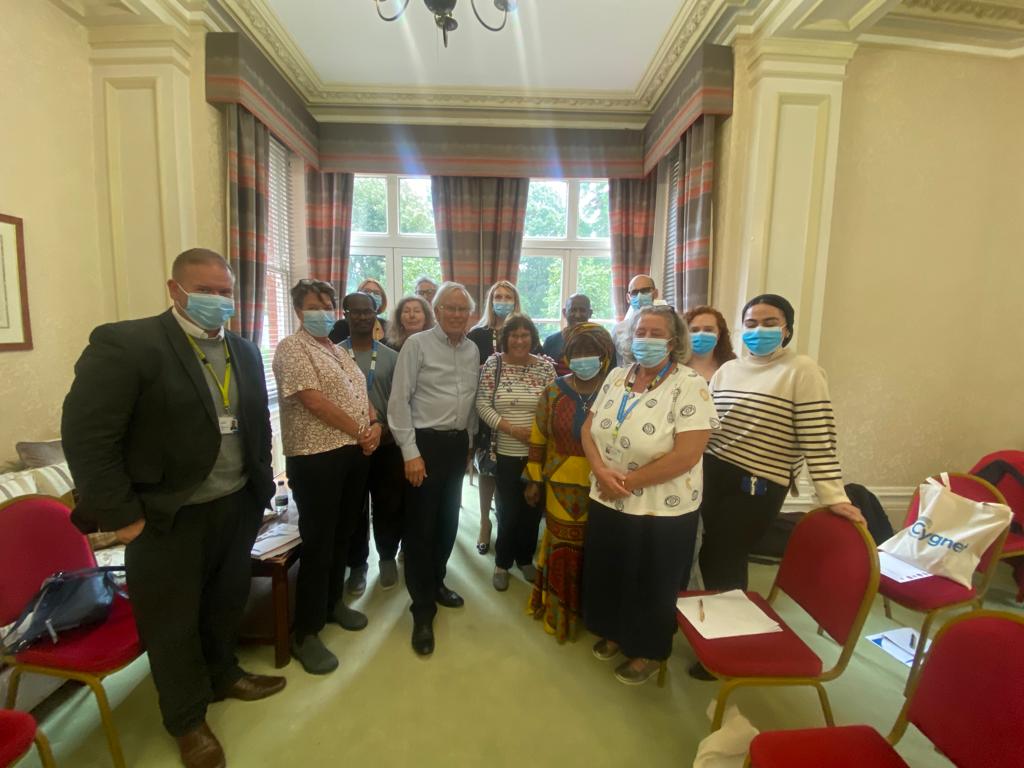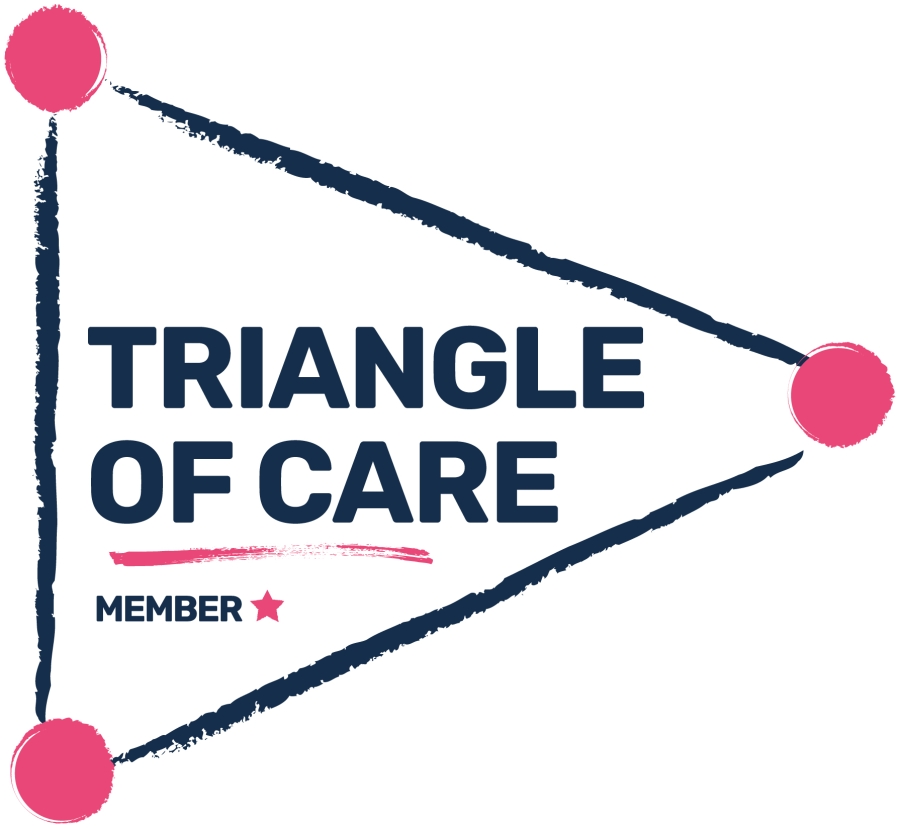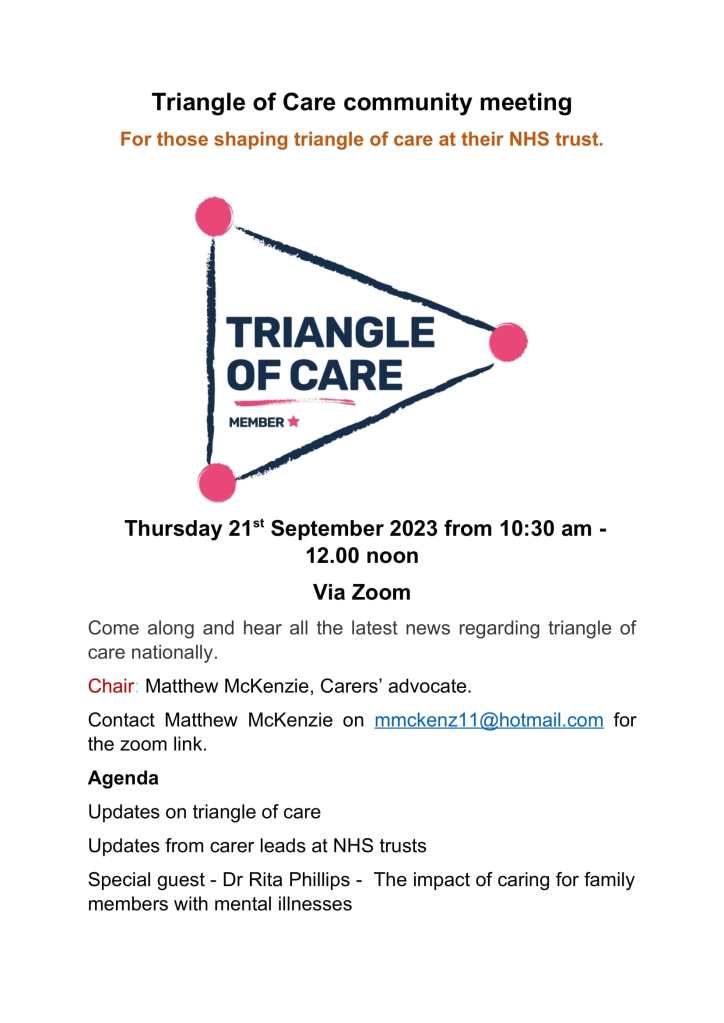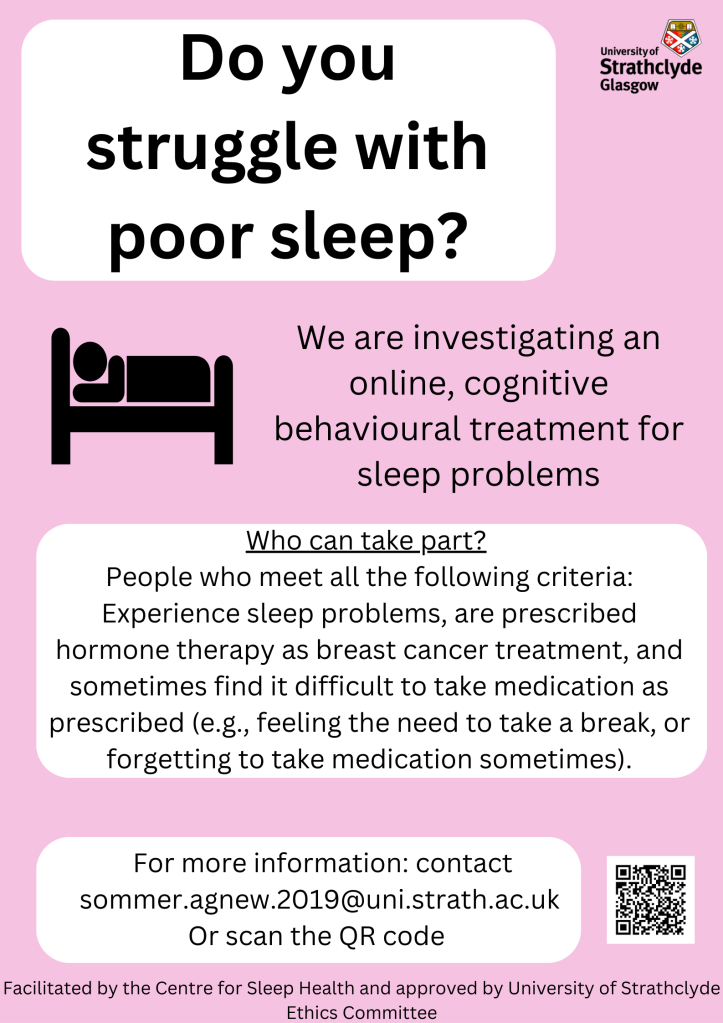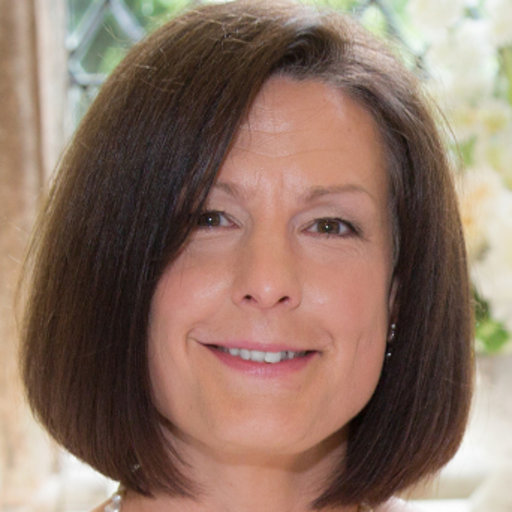Welcome to another blog post from carer activist Matthew McKenzie. As a carer I find it vital that carers of those going through mental ill health get a chance for engagement from services. Friends and families tend to hidden away supporting their loved ones. They want the best support, but often struggle to be heard.
As one of the carer ambassadors for Cygnet health care, I was delighted to attend and support their latest carer network event. There have been a series of carer network events taking place around Cygnet sites and the latest one was held over at Cygnet Hospital over in Harrow. The event was planned in coproduction by Laura Sheridan Group Service Improvement Manager for Cygnet. Laura helps lead on the carer network programme and triangle of care focus at Cygnet.
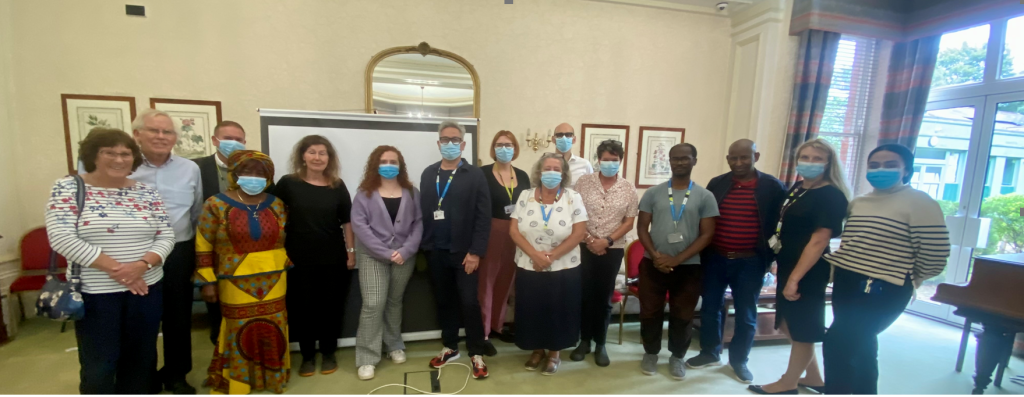
For our latest carer event we had a fantastic line up of speakers. Cygnet health care want carers to be part of their network and want carers to be involved by leading from the front. Our first speaker was Lesley Mellor who is Parent Carer. She is also one of the carer ambassadors for Cygnet health care. Lesley shared her knowledge about the importance of including carers and the promise that Cygnet health care will be there to support unpaid carers.

The next speaker was Sharon Spurling who is the Triangle of Care Programme Lead at Carers Trust. Cygnet Health care wants to strenghen its policies to have that carer focus. The triangle of care programme offers that chance to raise carer identification and engagement to the highest standard. Several of Cygnet hospitals are working on triangle of care standards at their sites. With carers at our latest network event, it was a chance to promote what triangle of care is all about.

We also had Julie Garbett present about Julie is a Regional Nurse Director (London and South), Cygnet Julie is a registered mental health nurse of 20 years, with a vast range of experience gained working for NHS Mental Health Trusts and CMHTS in the South East. Julie spoke about how important carers are to Cygnet. Julie helped identify how carers are not just one group, unpaid carers can be anyone.
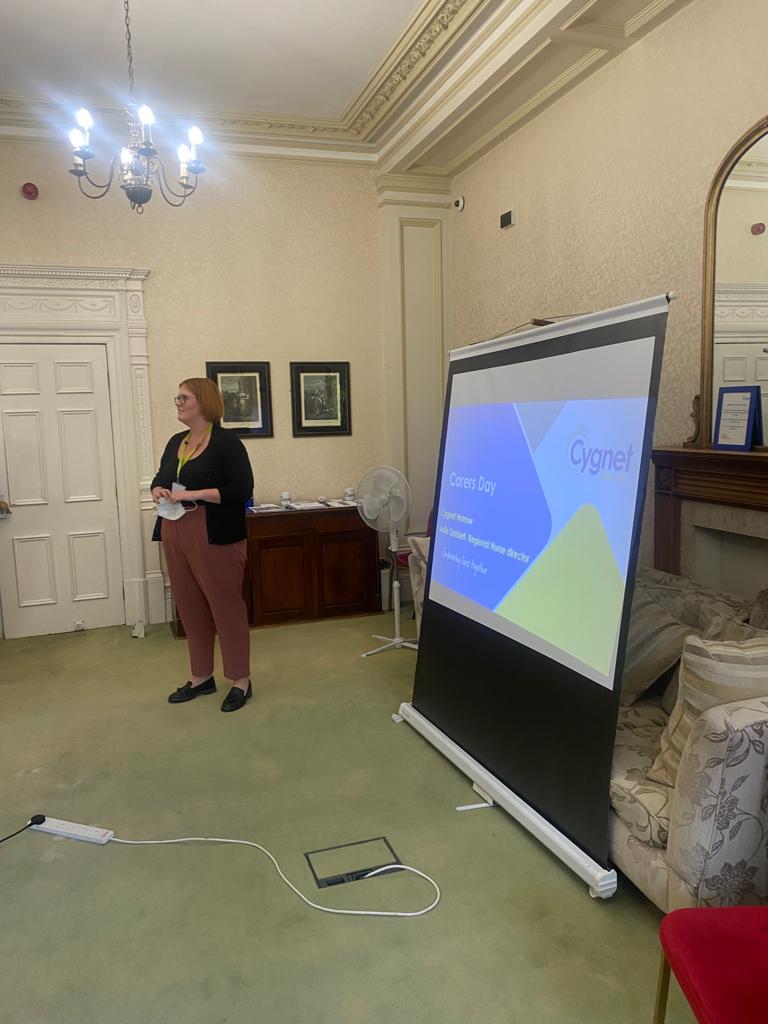
At the event carers were looked after with a lovely meal and a chance to network with speakers and with other carers.

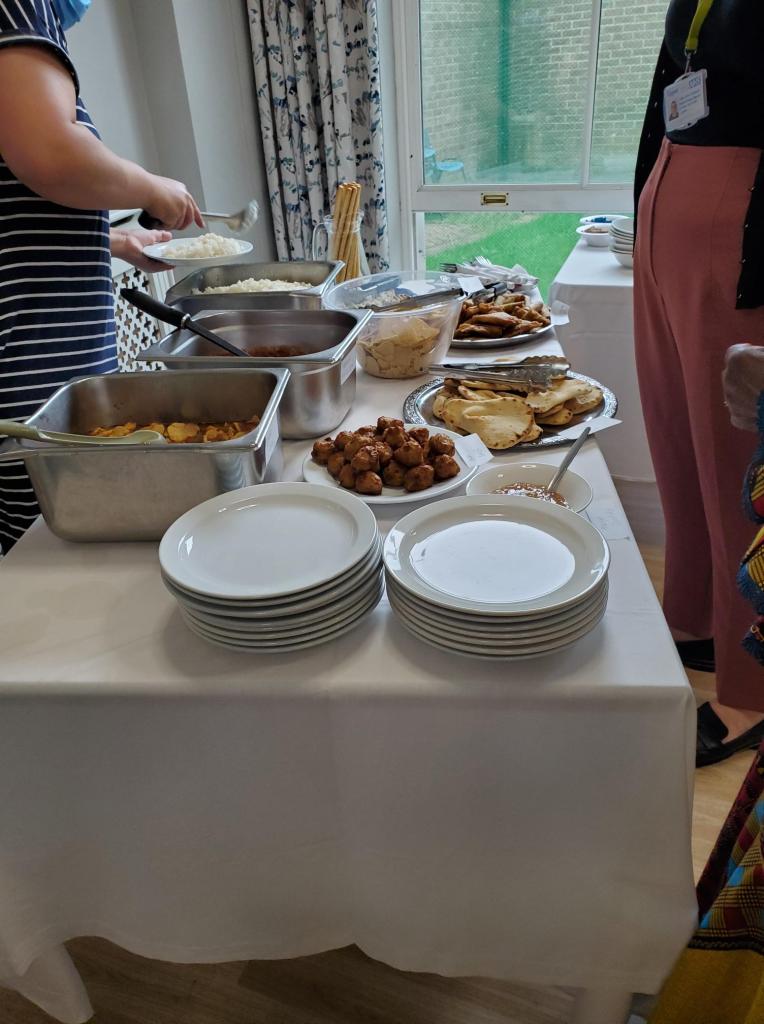
We then heard from Matthew Gill who is Director of Psychology Services Midlands at Cygnet. He is a Consultant Forensic Psychologist with over 20 years of experience. Matthew is a committee member for the British Psychological Society and an AIMS assessor for the Royal College of Psychiatry. Matthew spoke about the importance of talking therapies. You can see from one of the slides on what Matthew covered below.

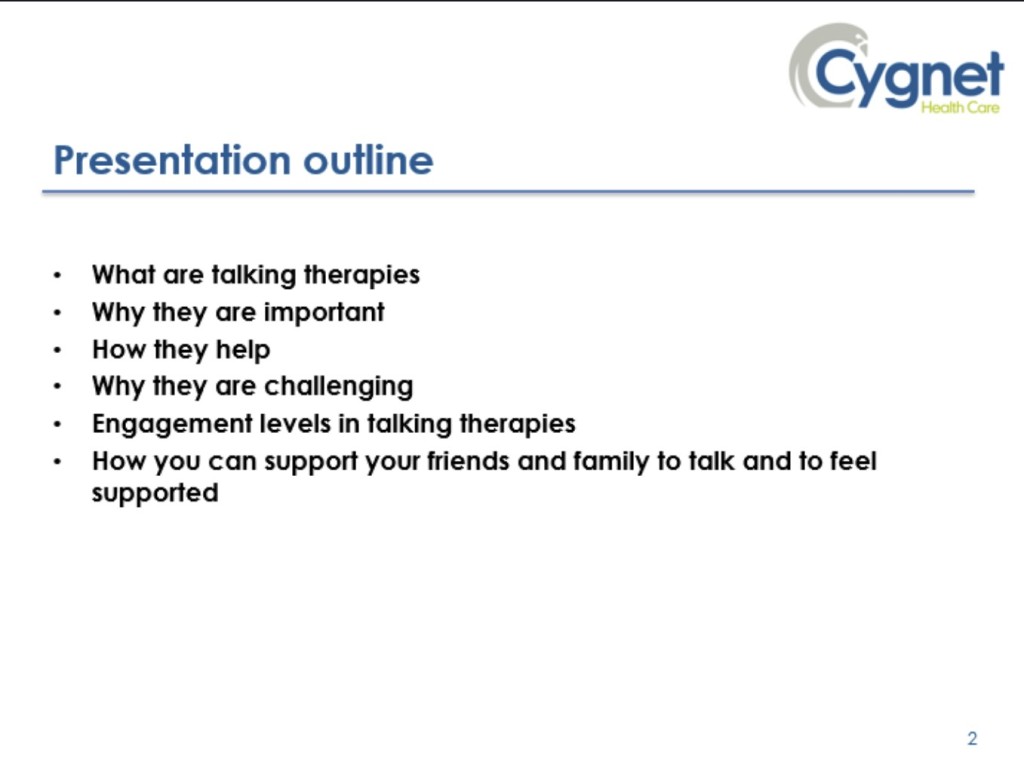
It was important we get to hear from the lived experience voice of the carer. Julian de Takats – Parent carer told his story and his thoughts about the carer experience. Julian as another carer ambassodor for cygnet health is passionate about carers being able to network and working together in a peer environment. Julian worked in the music industry before accidentally becoming a carer. Julian has been an active member of the Cygnet Carers Network since 2022 and is now proudly an Expert by Experience Carer Ambassador.
Next up to present at the carer network event was Dr Richard Church who is the Medical Director, Cygnet Hospital Woking. Dr Church studied medicine at the University of Cambridge and undertook general psychiatric training at South London and Maudsley NHS Foundation Trust. After working in the NHS for over 15 years, in November 2017, Dr Church joined Cygnet Woking as Medical Director and Consultant Forensic Psychiatrist. Dr Richard spoke about the barriers carers face when speaking to services. Richard gave an honest presentation that cygnet also faces challenges when working with carers, but he also gave thoughts on how cygnet with working with those challenges.
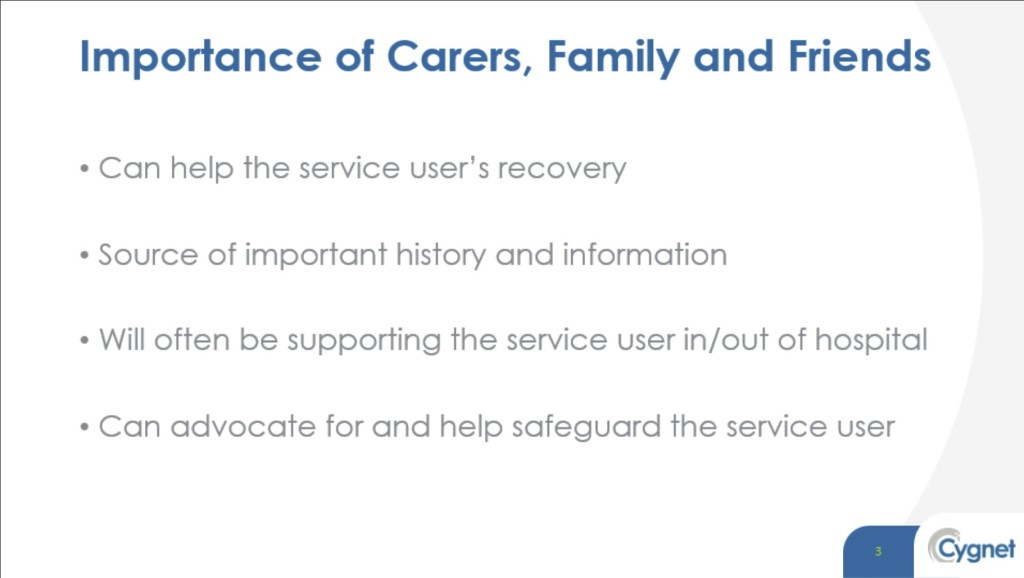
My thoughts summing up the event
The location, theme, presentations and speakers were excellent. Time and time again I state it is important the mental health, social care and health providers hold engagement events on what they offer to carers. It is not enough to promote an offer to carers as unpaid carers need to be involved and also need empowered to network, develop peer skills and work with providers.
Cygnet health care are setting an example that carers play an important part of recovery. Carers should not be hidden away struggling to support and provide care. I do admit that health and social care is struggling with the challenges they face, but we all need to work together. I hope we continue to reach out to carers, promote carer focused policies and be held to account on our promise to carers. This is a new journey for cygnet, but we want to share the journey with our carers.
